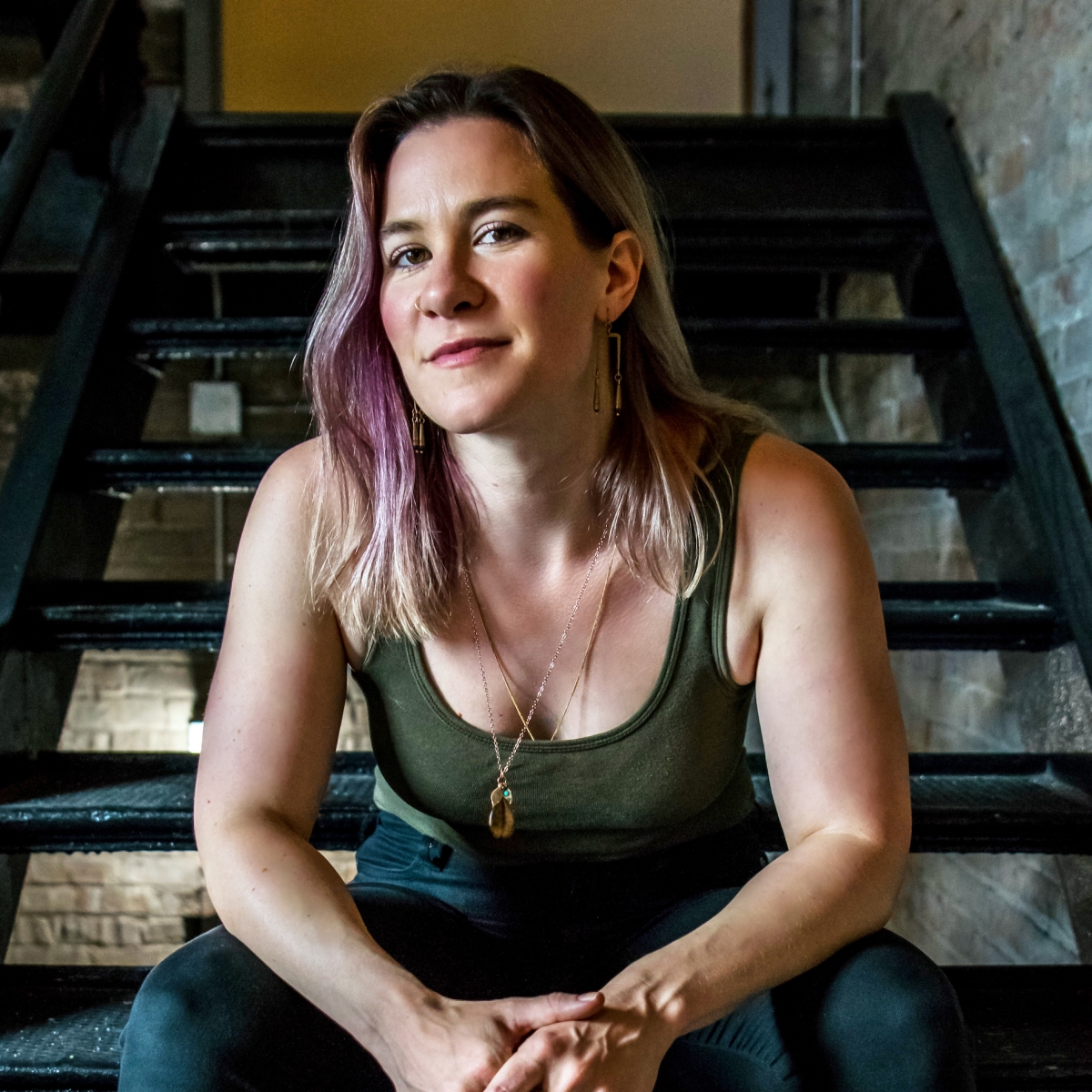Jessamyn Fitzpatrick
M.A. '23

Jessamyn Fitzpatrick is a theatre artist, educator and pleasure seeker working at the intersections of sexuality, reproductive justice, and performance. Jessamyn spent several years touring nationally in Sex Signals, an interactive show about gender, sexual violence and consent. She was a company member with For Youth Inquiry (FYI) for the Illinois Caucus of Adolescent Health (ICAH) from 2017-2022 – developing and performing participatory theatre surrounding reproductive justice issues. With FYI she produced and co-wrote FIRST, a play about virginity in 2017 and she co-wrote This Boat Called My Body, in 2018, a participatory, call to action play about youth abortion access in Illinois. Jessamyn is an actor, devising artist, and writer working to activate art as a means of erasing stigma surrounding sex and sexuality, and rewrite sexual scripts to allow for greater pleasure equity. She is the creator of Sex Positivity Tarot – a tarot-inspired practice designed to facilitate curious, shame-free conversations about sex. Most recently she co-conceived, produced and performed in Meeting Our Desires, an immersive, site-specific theatre piece exploring how the ongoing COVID-19 pandemic has impacted folks’ relationships to sexuality, intimacy and relationship.
Why PS @ NYU?
I was particularly drawn to Performance Studies because it offers interdisciplinary concentrations, providing fertile ground for students interested in advanced degrees in Gender and Sexuality as well as Theatre. More traditional theatre programs tend to divide students into neat silos of Directing, Acting, Playwriting etc. but all of the artists that I know and work with wear multiple hats and carry a slew of multi-hyphenate roles, especially at the intersection of theatre and social justice. I similarly move between the roles of writer, performer, curator and teaching artist. I see this plurality of passions reflected in the broadness of Performance Studies. I appreciate how NYU Tisch highlights a combined pedagogical approach including feminist and queer theory, as well as critical race theory, which are essential in understanding how media and performance can create sexual expression, exploration or exploitation, depending on the context.